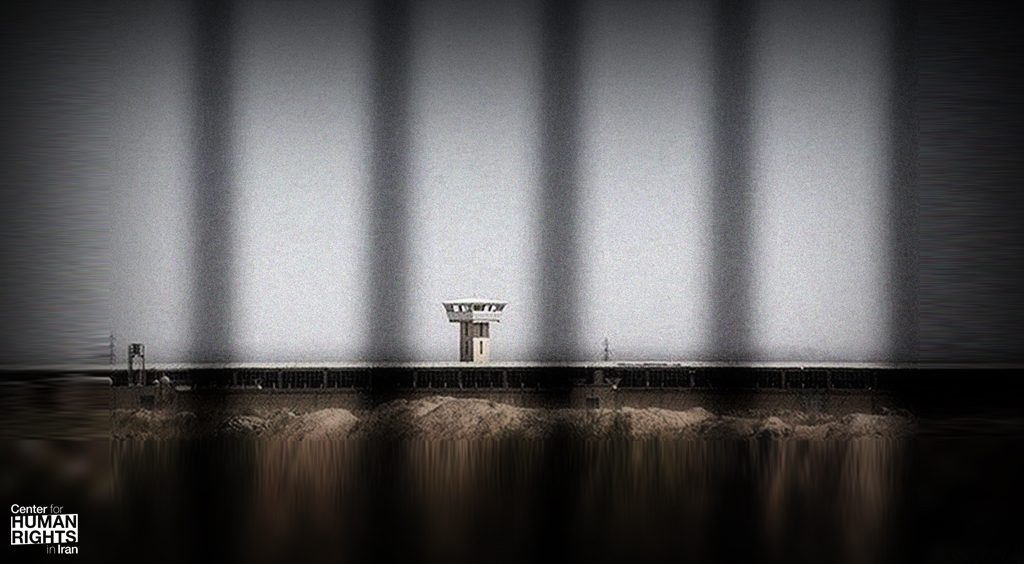Iranian Courts are Unlawfully Banishing Political Prisoners Into “Prison Exile”

*Editor’s Note: Transfers that occurred after this article was published are listed at the bottom.
Iran’s judicial system has a long, documented history of sentencing detainees held on politically motivated charges to “exile”—prolonged banishment to a remote, underdeveloped town or city far from the detainee’s residence—after the completion of a prison sentence.
The sentence is intended to isolate prisoners as well as prevent them from interacting with their friends, family, and giving interviews to news outlets, or expressing themselves on social media, which they are usually banned from using.
Now political prisoners including peaceful activists, religious minorities, and dissidents are also being sent to remote, severely under-resourced prisons as a form of additional punishment in the middle of their prison terms.
Exile as a form of punishment imposes suffering on the detainee primarily due to the severe isolation they experience. Yet this punishment also harms the detainee’s family by removing the somewhat accessible location of a nearby prison that family members could visit.
This form of collective punishment is a violation of the international human rights law principle of limiting punishment to the perpetrator.
The practice of sending prisoners into prison exile is also unlawful and could be challenged in the Supreme Administrative Court, as it violates Note 3 of Article 513 of the Code of Criminal Procedure, which states that prisoners should serve their terms in prisons close to where they live.
Prison Exile as a Form of Collective Punishment
In Iran, a court can order a person into “exile” at a specific location for a specified time, often years. The individual must report to local authorities and remain in that location for the assigned period or face further punishment.
In contemporary Iranian law, the concept of exile or banishment is rooted in Shia theology and referred to as nafye balad (literally “denial of country”).
Exile can be ordered as primary punishment, for example under the charge of moharebeh, “armed rebellion,” under Article 279 of the Islamic Penal Code. Or as supplemental punishment for various charges noted in Article 23, to be carried out after the completion of a prison sentence.
Exile locations, chosen by judges from a list prepared by the Interior Ministry, are usually in remote towns in regions gripped by extreme poverty.
CHRI has documented several cases of detainees held in politically sensitive cases being sentenced to exile.
Siamak Mirzaei, an advocate of Azeri ethnic minority rights in northwestern Iran, was sentenced to one year exile in the faraway city of Qaen, in South Khorasan Province, in the southeast of the country.
Many Gonabadi Sufi dervishes who were convicted of national security crimes for participating in street protests in Tehran in 2018 have also been exiled to remote locations in Sistan and Baluchistan, South Khorasan, Khorasan Razavi, Bushehr, Kermanshah, and Kerman provinces.
Iran’s “Revolutionary Court” system has also been sentencing political prisoners convicted of national security crimes to “imprisonment in exile” far from their permanent residences.
In the latest case, on March 10, 2021, imprisoned labor affairs reporter Sepideh Qoliyan (also spelled Gholiyan) was transported from Evin Prison in Tehran, where she was serving a five-yearsentence on national security charges for her peaceful activism, to the central prison in the port city of Bushehr on the Persian Gulf coast, an informed source confirmed to the Center for Human Rights in Iran (CHRI).
Bushehr is more than 370 miles south of Ahvaz, the capital of Khuzestan Province, where Qoliyan had requested to be transferred to be near her parents.
One day earlier on March 9, political prisoner Maryam Akbari-Monfared was exiled from Evin Prison, where she has served more than 11 years of her 15-year sentence, 110 miles east to the central prison in Semnan, an extremely inaccessible location for her children.
She was transferred after signing an open letter with a number of other cellmates on March 1 condemning the death of political prisoner Behnam Mahjoubi due to lack of medical attention, as well as the transfer of “13 prisoners from the Women’s Ward” in Evin Prison to “scatter political prisoners… in the vain hope of breaking their circle of resistance.”
In addition, on January 24, 2021, Golrokh Iraee Ebrahimi, a civil rights activist, was transferred from Gharchak Prison to the central prison in Amol, Mazandaran province in northern Iran, far from her parents.
Previously, Kurdish political prisoner Zeinab (also Zeynab) Jalalian was exiled to the central prison in Yazd, southeast Iran, on November 11, 2020—her fourth prison transfer in eight months without explanation.
Renowned human rights lawyer Nasrin Sotoudeh was also suddenly transferred from Evin Prison to Gharchak Prison on October 13, 2020, under the pretext that she has been convicted of a common crime and no longer “qualified” to be in her previous ward.
Other cases of prison exiles occured in October 2020, including anti-compulsory hijab activists Yasaman Ariyani and her mother Monireh Arabshahi, who were exiled from Evin Prison to Kachuei Prison in Karaj, west of Tehran, and political prisoner Samaneh Norouz-Moradi, who was transferred to the central prison in Roudsar, northern Iran.
Read this article in Persian.
Additional Transfers:
- March 16, 2021: Civil rights activist Atena Daei was transferred “with hands and feet tied” from Evin Prison in Tehran to Lakan Prison in Rasht (Northern Iran), according to a tweet by her father Hoseyn Daemi.






